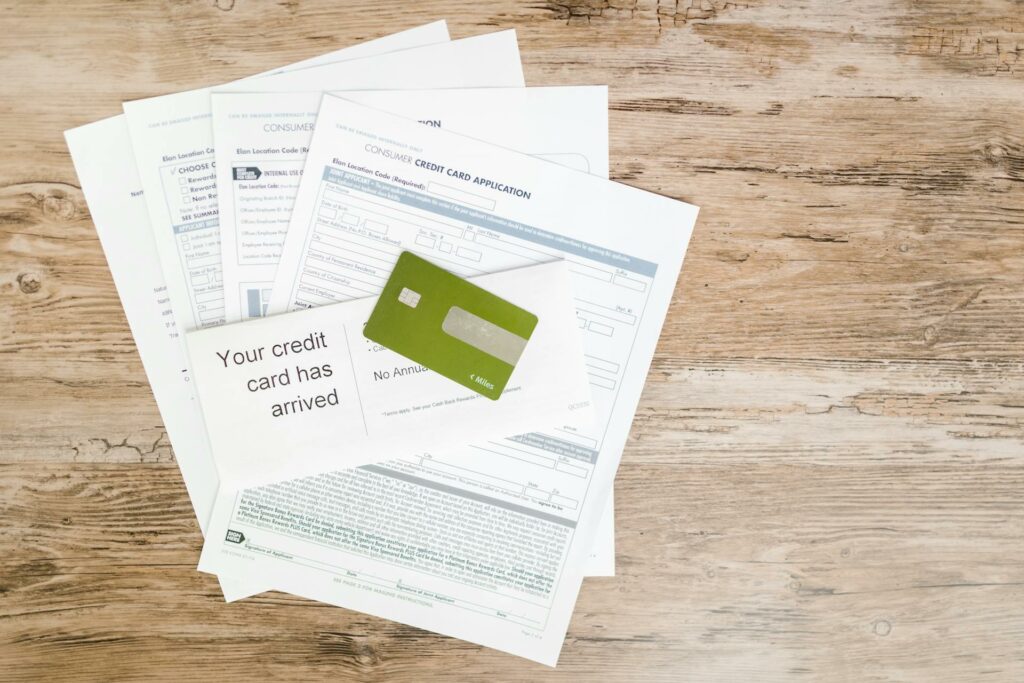What to Do When You Have Unauthorized Hard Inquiries
Unwanted hard inquiries on your credit report can be an alarming discovery, threatening your financial security and potentially driving your credit score down. While it’s essential to tackle this issue head on, many individuals feel uncertain about the correct approach. We will be discussing the steps required to handle such incidents efficiently, from identifying and disputing unauthorized hard inquiries to contacting relevant authorities, and finally, strategies to avoid future occurrences. Stay with us as we unravel the complexities of this subject, guiding you towards maintaining a healthier credit profile.
Understanding Hard Inquiries
Delving into the nitty-gritty of hard inquiries, it is essential to first comprehend what they truly constitute. Hard inquiries, also known as ‘hard pulls’, occur when a lender or credit card issuer checks your credit report as part of their decision-making process. This typically happens when you apply for a loan, credit card, or mortgage.
These inquiries can impact your credit scores. Their impact analysis reveals that multiple hard inquiries in a short period can be detrimental, as they may portray you as a high-risk borrower. It is, consequently, essential to manage these inquiries effectively, a task which requires a certain level of financial literacy.
Consumer rights come into play here. You have the right to dispute unauthorized hard inquiries under the Fair Credit Reporting Act. Credit monitoring services can help you detect these inquiries early on, thereby preventing potential identity theft. They can also assist in removing the unauthorized hard inquiries from your credit reports, helping to maintain your credit health. Understanding hard inquiries is a significant step in your journey towards financial literacy and effective credit management.
Identifying Unauthorized Inquiries
Having grasped the understanding of hard inquiries, we can now proceed to an equally important aspect – identifying unauthorized inquiries. Your credit report is a crucial tool in this process. Regular monitoring of your report will help you spot red flags indicating potential unauthorized hard inquiries.
Unauthorized inquiries occur when a company or individual accesses your credit information without your explicit permission. These unauthorized inquiries can be a sign of potential identity theft or fraud, and it is vital to address them promptly.
Red flags that may indicate unauthorized hard inquiries include inquiries from companies you don’t recognize or recall doing business with, a sudden increase in the number of inquiries, or inquiries dated when you didn’t apply for credit. If you notice these red flags on your credit report, it is important to investigate further.
Request detailed information from the credit bureaus concerning the suspicious inquiry. The Fair Credit Reporting Act (FCRA) gives you the right to know who is inquiring about your credit. If the inquiry is indeed unauthorized, appropriate action, such as dispute filing, needs to be taken to rectify the situation.
Effect on Your Credit Score
A significant number of unauthorized hard inquiries can have a deleterious impact on your credit score. The severity of this impact depends on various factors, including the total number of inquiries and the time period in which they occur.
Each hard inquiry can potentially reduce your credit score by several points. While a single inquiry might not cause major damage, multiple unauthorized inquiries can accumulate to create a significant credit score impact. This is particularly troubling as credit scores play a fundamental role in securing favorable interest rates for loans and credit cards.
Moreover, the hard inquiry effects extend beyond just numerical damage. They remain on your credit report for two years, thereby presenting a long-term risk. During these two years, potential lenders viewing your credit report may perceive these inquiries as a sign of financial instability or desperation, which could negatively influence their lending decisions. In some cases, these unauthorized inquiries may even affect bankruptcy proceedings, complicating your financial recovery efforts. If you’re concerned about how unauthorized hard inquiries can affect bankruptcy proceedings, you may want to explore strategies for navigating these challenges effectively.
Therefore, it is essential to regularly monitor your credit report and stay vigilant about any unauthorized hard inquiries. By doing so, you can better maintain your credit health and mitigate any detrimental effects on your credit score.
Disputing Unauthorized Inquiries
Now, let us move forward to the critical part of addressing unauthorized hard inquiries – disputing them. This section will provide a thorough understanding of unauthorized inquiries, guide you through the detailed steps needed to dispute such inquiries, and share necessary measures to prevent future unauthorized inquiries. By successfully disputing unauthorized inquiries, one can mitigate their adverse impact on your credit score and safeguard your financial health.
Understanding Unauthorized Inquiries
In the domain of credit reporting, unauthorized inquiries can present a serious concern for consumers. These inquiries occur when a third-party views your credit report without your consent, potentially impacting your credit score and constituting a breach of data privacy.
In the journey towards financial literacy, understanding these inquiry types is vital. Unauthorized inquiries typically occur when identity theft leads to fraudulent credit applications. Lender policies should prevent unauthorized access to your credit information, but breaches can and do occur, underscoring the need for consistent credit monitoring. Understanding how financial crime can lead to unauthorized credit inquiries can also help you identify potential risks and take proactive measures to protect your financial information.
Your credit report is a detailed record of your credit history, and any unauthorized inquiries can be a sign of foul play. It’s imperative to regularly review your credit report for any suspicious activity, as a means of credit education. Additionally, being cognizant of your consumer rights is key. You have the right to dispute unauthorized inquiries and to seek reparations for any damages incurred.
Steps for Disputing Inquiries
Maneuvering the process of disputing unauthorized inquiries on your credit report may initially seem intimidating. However, understanding the dispute process can greatly ease the task. Here are the steps to guide you.
First, identify the unauthorized hard inquiries on your credit report. It’s essential to regularly review your report for any discrepancies. Second, contact the credit bureau—TransUnion, Experian, or Equifax—where the inquiry appears. Write a dispute letter, detailing the reasons why you believe the inquiry is unauthorized.
The dispute process also involves contacting the company that initiated the inquiry. Send them a copy of your dispute letter, and ask for their investigation. Remember, it’s your right under the Fair Credit Reporting Act to dispute any inaccurate information on your credit report.
Bear in mind that the dispute process can take time. Both the credit bureaus and the inquiring company have 30 days to investigate and respond. Patience is required, but remember, the goal is to guarantee the accuracy of your credit report and safeguard your financial reputation.
Preventing Future Unauthorized Inquiries
While the process of disputing unauthorized inquiries is vital to maintaining a healthy credit report, it’s equally important to take steps to prevent such inquiries from occurring in the future. It is necessary to understand that prevention is often a more straightforward path than rectification.
One effective preventive measure is utilizing credit monitoring services. These services provide real-time surveillance of your credit report and notify you of any significant changes or suspicious activities. They can help you detect unauthorized inquiries early, thereby allowing you to act promptly to limit potential damage.
Additionally, you can set up inquiry alerts. These alerts notify you whenever a new hard inquiry is made on your credit report. This enables you to immediately identify unauthorized inquiries and take swift action to dispute them.
Lastly, safeguard your personal information diligently. Avoid sharing sensitive data like your Social Security number unnecessarily and be cautious of potential phishing schemes. Confirm that your information is only provided to reputable and secure entities.

Contacting the Inquiry Source
Establishing contact with the source of the inquiry is an essential step in addressing unauthorized hard inquiries. This process involves reaching out to the financial institution or company that initiated the inquiry. The goal of this contact is two-fold: inquiry verification and source accountability.
Inquiry verification involves confirming whether or not the inquiry was indeed made by the said institution. Occasionally, unauthorized inquiries could be a result of errors in the system or miscommunication. In such cases, contacting the source can help in rectifying the situation swiftly and effectively.
The second goal, source accountability, is equally significant. If it is determined that the inquiry was unauthorized and not an error, the responsible entity must be held accountable. This could involve a formal complaint to the institution or a report to the appropriate regulatory body. This step not only rectifies your current situation, but also serves as a deterrent against future unauthorized inquiries.
Protecting Against Future Inquiries
Having addressed the issue of unauthorized hard inquiries and ensuring source accountability, it is vital to look ahead and consider protective measures to prevent future occurrences.
A proactive stance is important in safeguarding your credit health. Regular monitoring of your credit reports allows for the early detection of any suspicious activity. Many credit reporting agencies offer services that provide regular updates about changes in your credit report, including any new inquiries.
In addition to monitoring credit, setting up credit alerts is another effective method of protection. These alerts notify you whenever there’s a substantial change to your credit files, such as a new account being opened or a hard inquiry being made. This real-time information enables you to take immediate action if there’s unauthorized activity.
Maintaining Good Credit Health
As you journey towards financial stability, maintaining good credit health is a key component. It involves a delicate balance of credit utilization, prompt payment history, and effective financial planning.
Credit utilization refers to the percentage of credit available that you’re currently using. It’s a significant factor in credit score calculations. To maintain healthy credit, aim to keep your utilization below 30% of your total credit limits.
Payment history, on the other hand, reflects your ability to make payments on time. A flawless payment history illustrates your responsibility towards debt management, positively impacting your credit score. Any late payments can damage this history, leading to lower scores and difficulties in future loan applications.
Credit monitoring is another important aspect. Regularly review your credit reports for any unauthorized hard inquiries or discrepancies. It’s a proactive measure that aids in early detection of identity fraud.
Financial planning and proper budgeting strategies play an integral role too. They help in managing your expenses and guaranteeing that your income sufficiently covers your debts, thereby preventing the need for excessive borrowing. By adhering to these guidelines, you can guarantee good credit health, allowing for better financial opportunities in the future.
Frequently Asked Questions
What Are the Legal Consequences of Unauthorized Hard Inquiries?
Unauthorized hard inquiries can negatively impact credit scores. Under the Fair Credit Reporting Act, consumers have the right to dispute these inquiries. If proven, legal consequences may include fines and penalties for the offending party.
Can Unauthorized Hard Inquiries Affect My Chances of Getting a Job?
Yes, unauthorized hard inquiries can potentially impact your employment prospects. Employers conducting a credit screening as part of an employment background check may view frequent inquiries as a sign of financial instability.
How Long Do Authorized Hard Inquiries Stay on My Credit Report?
Authorized hard inquiries typically remain on your credit report for two years. These inquiries can impact your credit score slightly, but their effect diminishes over the credit report duration, generally not affecting long-term creditworthiness.
Are There Specific Agencies I Can Report Unauthorized Credit Inquiries To?
Yes, you can report unauthorized credit inquiries to the three major credit reporting bureaus—Equifax, Experian, and TransUnion. They offer online portals for filing inquiry disputes, providing a streamlined process to address such issues.
How Can I Prevent Identity Theft Related to Unauthorized Hard Inquiries?
To prevent identity theft related to unauthorized hard inquiries, consider implementing credit monitoring tips such as regularly reviewing credit reports, setting fraud alerts, and employing identity theft prevention services for extensive protection.







